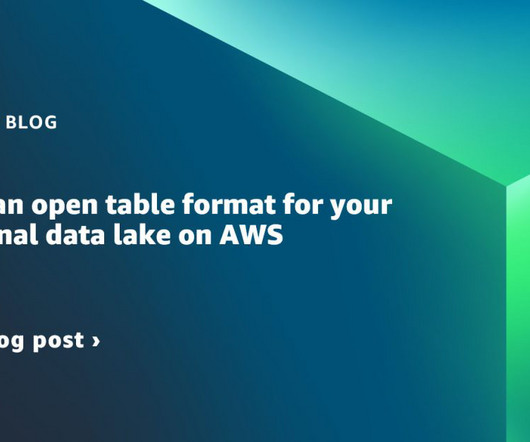What is a data architect? Skills, salaries, and how to become a data framework master
CIO Business Intelligence
OCTOBER 13, 2023
Data architect Armando Vázquez identifies eight common types of data architects: Enterprise data architect: These data architects oversee an organization’s overall data architecture, defining data architecture strategy and designing and implementing architectures.














Let's personalize your content